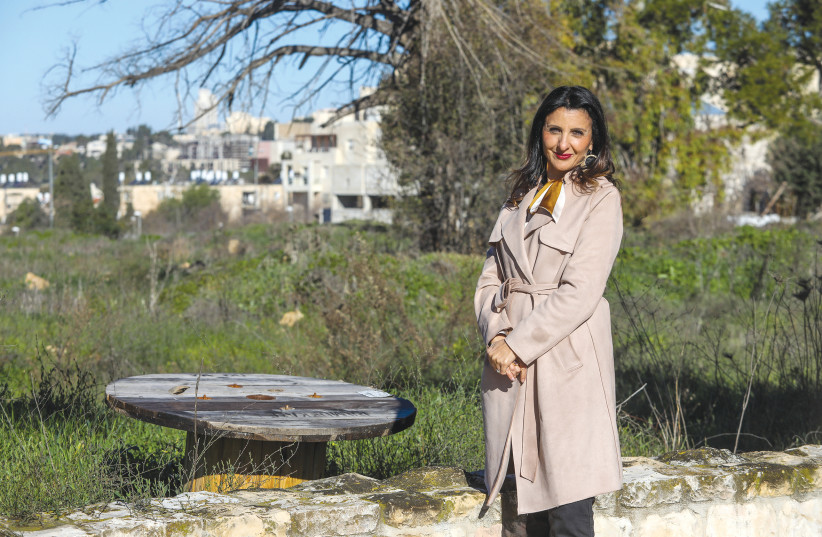As Shabbat came to a close last Saturday night the day before Hanukkah, I began to receive a number of panicked phone calls. Students on full-time visas were worried that Omicron variant travel bans would prevent them from returning to Israel after visiting home for Thanksgiving. They were right to be concerned; by late evening, the government had decided to bar non-Israelis from entry with no consideration for visa holders, be they students or permanent residents. On Sunday, Dov Lipman, founder of Yad Laolim, went to the Knesset to impress upon the government that you simply cannot put people who live in Israel–whether short or long term–in the same box as tourists. Thanks to Dov’s intervention in the Knesset followed by a letter I wrote directly to the Prime Minister, by the end of the day there was a commitment to let student visas back in. Forty eight hours later, however, the forms for allowing re-entry had yet to be updated. Students were simply showing up for their flights and hoping they could convince airport authorities to let them get on the plane. Some succeeded and some sadly did not. The entire process, which was more dependent on the airport and the mood of the check-in counter workers than anything else, was alarmingly inadequate.
The events of the past couple weeks are a continuation of the government’s blatant disregard for the needs of immigrants and visa holders during the pandemic. When reopening the country after lockdowns, the previous government established an exemptions committee to allow first-line family to enter Israel for milestone events. Israeli Consulates around the world were bombarded by requests. The exemptions committee also had a website where family members could submit direct requests for entry. While this process existed, response times were sometimes slow. At some point, Israelis discovered that their local interior ministry offices could also issue entry permits. In Jerusalem, people lined up for hours in order to get approval for their loved ones’ visits. Many were still unable to get in because the system was oversubscribed and drowning in requests.
The government’s recent decision to pull up the drawbridge to visitors due to Omicron has real and urgent implications for visa holders and immigrants. Despite rumors that the exemptions committee has been reconstituted, days have passed since the closing of the borders, and there is still no clear address or point person. Family members with flights booked for Hanukkah, weddings, bar and bat mitzvahs, and family visits remain confused and stranded, losing tickets that they purchased with such optimism. We immigrants feel their absence deeply. Expectant mothers who immigrated to Israel are pleading especially desperately with Interior Minister Ayelet Shaked to allow their parents to enter for their children’s upcoming births. Their calls for physical and emotional support are falling on deaf ears. Even in tragic situations like the recent death of the young soldier Eli Kay, those who came to support the family through heartbreak were coldly and unceremoniously sent home, and on Shabbat no less. The latest complaint I received with supporting evidence is from a Canadian Jew who was told that Bar Mitzvahs are a reason to apply for entry but Bat Mitzvahs are not!!! Chaos miscommunication and general lack of leadership is the current status quo.
 Learn how to buy your home in Israel with confidence
Learn how to buy your home in Israel with confidenceIsraelis generally welcome immigrants with a great deal of empathy and admiration.
Policy, however, reveals a complete and utter insensitivity, even simple ignorance, towards our needs at the institutional level.
We immigrants are concerned citizens. We understand that health matters and appreciate the intention behind public health directives. But we are now coming up on two years in the pandemic, and there is no concrete end to this era in sight. Immigrants and visa holders who are living in Israel for any period of time cannot go on this way. We cannot continue to muddle through constantly-changing regulations. We cannot continue to deal with unmanageably chaotic systems. And we cannot continue to allow our family ties to be eroded by distance and time apart.

As an immigrant of over 20 years in this country, and now, as part of the political fold, I understand that one of Israel’s greatest treasures is the mixing of cultures and traditions that happens due to Aliyah. Israel has always been and will always be a country of immigrants. But Jews do not leave lives in other countries and come to Israel without sacrifice, and being away from family is perhaps the greatest sacrifice of all. Olim's lives are not defined within the country’s borders; our ecosystem includes our home countries and communities. Throughout the pandemic, our family ties have been ignored and discarded. For us to thrive in Israel, the government must recognize that we are still indeed a country of immigrants and act accordingly.
The writer is the Deputy Mayor of Jerusalem and a candidate for Chair of Jewish Agency.
 Sign up for our newsletter to learn more
Sign up for our newsletter to learn more 